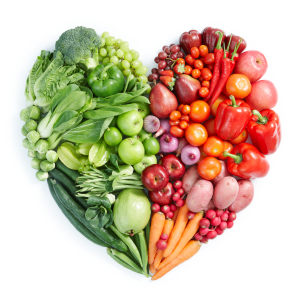
24 Apr Inflammation and Nutrition
Julie Daniluk RHN, NNCP, is a nutritionist, television co-host, and an award winning author. Julie is the author of Meals That Heal Inflammation (Random House Canada), a book based exploring the causes of inflammation while teaching about nutrition and its connection to inflammation. In addition to her book, Julie has a blog containing information on food and health as well as delicious recipes. Julie also co-hosts Healthy Gourmet on OWN, a show that explores the choices we make about food and the ongoing struggle to produce meals that not only taste great but are great for you as well. Julie has been recognized as an author and nutrition expert. She received the prestigious awards in 2012 for Organic Achievement and ‘Healthiest Cookbook’. She is a guest on Mind Matters discussing the Anti-Inflammation Diet.
Pain. Heat. Redness. Swelling. Loss of function.
These are some of the more common signs that you are experiencing inflammation. So what is inflammation? Put simply, inflammation is your body attempting to protect you from harmful stimuli. These harmful stimuli can be anything from a sliver in your foot to the food that you eat. Inflammation can occur in many different parts of the body. Not only does the inflammation affect your body, it also impairs your cognitive abilities and can lead to a decline in mood. The important thing to remember about inflammation is that it is preventable and treatable.
There are some foods that can cause inflammation. Foods that are processed, packaged, and prepared are just the tip of iceberg when it comes to foods that cause inflammation. Some other types of foods that cause inflammation include:
The anti-inflammatory diet is comprised of foods that will help heal your body. These foods are healthy, wholesome, and unprocessed. Fruits and veggies, the cornerstones of any healthy diet, are part of the anti-inflammatory diet, as are proteins that are rich with omega-3 (salmon, walnuts, etc.). That being said, taste does not have to be sacrificed in the name of the nutritional quality. Julie Daniluk’s blog showcases some great and tasty recipes, as well as meal ideas for those new to the anti-inflammatory diet.
Natural supplements are a great addition to the anti-inflammatory diet. It is important to consult your healthcare professional before taking any supplements as they may interact with other medications or aggravate other current conditions.
Whether it is caused from diet or other factors, inflammation is a natural response from your body. However, it is not a necessary one. By modifying your diet and being aware of what you are putting into your body, inflammation does not have to be a persistent and recurring issue.
For more information, please visit Julie Daniluk’s website.


